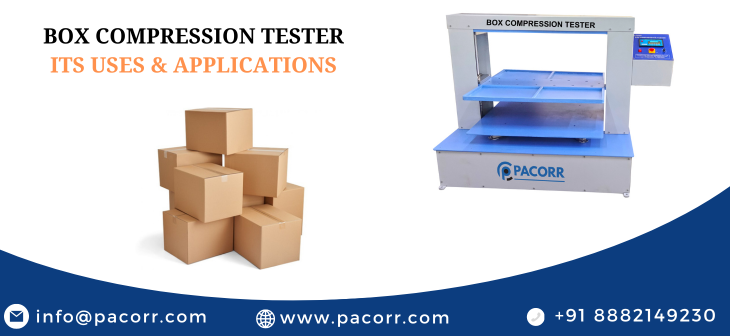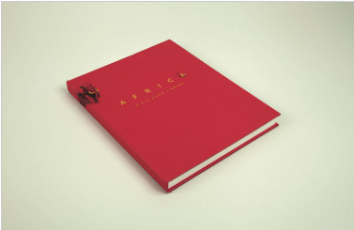
Packaging plays a crucial role in today's world, safeguarding products during shipping and storage while also preserving their quality. A box compression tester (BCT) is an essential tool for determining the strength and quality of packaging materials. International standards like ASTM D642, ASTM D4169, TAPPI T804, ISO 12048, and JIS Z0212 highlight the benchmarks necessary for maintaining packaging integrity. Pacorr’s box compression tester meets these standards while setting a new benchmark in box strength testing. In this article, we'll explore the fundamentals of box compression testing, international standards guiding the process, the features and specifications of Pacorr's box compression tester, and its uses and applications across various industries.
Understanding Box Compression Testing
Box compression testing (BCT) assesses the compressive strength of boxes, containers, and other packaging materials. This test determines the load a package can withstand before collapsing. Given the increasing complexity of global logistics and shipping, box quality testing has become essential.
Why is Box Strength Testing Important?
Box strength testing is crucial for several reasons. First, it ensures product protection by confirming that the packaging can endure transit stresses, reducing the likelihood of damaged goods. Second, it helps achieve cost efficiency by preventing both over-packaging and under-packaging. Third, it ensures compliance with industry regulations and standards. Finally, it safeguards a brand’s reputation by minimizing customer complaints and product returns.
International Standards for Box Compression Testing
Several international standards guide the box compression testing process, ensuring consistency and reliability. ASTM D642 determines the compressive resistance of shipping containers. ASTM D4169 defines performance testing requirements for shipping containers and systems. TAPPI T804 focuses on compression tests for fiberboard shipping containers, while ISO 12048 specifies tests for compression and stacking of complete, filled transport packages. JIS Z0212 is a compression testing standard specific to Japanese shipping containers.
Features and Specifications of Pacorr's Box Compression Tester
Pacorr offers a high-quality box compression tester that aligns with these international standards. Here’s a closer look at the features that make this product a standout choice.
Key Features:
Pacorr's box compression tester is equipped with high-precision load cells, ensuring accurate load measurement. The user-friendly interface includes a digital display and data logging, making operation simple. Safety measures like overload protection prevent damage to both the machine and the sample. The durable construction ensures longevity, while customizable testing modes offer both compression and stacking tests.
Technical Specifications:
The tester has a capacity of 1000 kg and features a digital display with a peak load indicator. The platen size is 450 mm x 450 mm, and the crosshead speed is adjustable to meet different testing requirements. Additionally, it complies with ASTM D642, ISO 12048, and other relevant standards. Pacorr’s box compression tester ensures high accuracy and repeatability, making it indispensable in box quality testing.
Uses and Applications of Box Compression Testers
Box compression testers have diverse applications across various industries. In the e-commerce packaging sector, boxes must withstand long shipping times and changing environmental conditions. BCT determines optimal packaging strength to minimize returns due to damaged products. In food and beverage packaging, boxes must protect perishable goods, and compression testing ensures that the packaging maintains its integrity under stacking loads. The pharmaceutical industry requires packaging that can handle prolonged stacking in temperature-controlled storage, and BCT confirms that boxes can endure such stacking without deformation.
In electronics packaging, delicate electronic components require sturdy packaging, and BCT verifies that boxes can protect sensitive electronics during transit. For automotive components, heavy parts need secure packaging to prevent damage, and BCT ensures that boxes can handle high compressive loads.
Industry-Specific Testing Scenarios
Box compression testing is useful for industry-specific scenarios. Warehouse stacking analysis simulates real-life stacking conditions to determine optimal box arrangement in warehouses. Transportation load assessment examines packaging robustness under varying loads to ensure safe transportation. Standard compliance testing conducts tests according to standards like ASTM D642 and ISO 12048 for regulatory adherence.
Key Benefits of Using Pacorr's Box Compression Tester
Pacorr's box compression tester offers several key benefits. Its high-precision load cells deliver reliable results, while automated data logging and analysis improve efficiency. The machine is versatile, accommodating a wide range of packaging materials and box types. It’s customizable with adjustable platen sizes and crosshead speeds to meet specific needs. Safety features like overload protection ensure safe operation.
Choosing the Right Box Compression Tester
Selecting the right box compression tester involves considering several factors. First, ensure the tester’s capacity aligns with your maximum load requirements. Second, confirm that the platen size accommodates your standard box dimensions. Third, ensure compliance with industry-specific testing standards. Automated data capture and analysis streamline testing processes, while high-quality materials and safety features are essential for durability.
A box compression tester is more than just a machine; it's a quality assurance tool that directly influences packaging integrity and, ultimately, brand reputation. Pacorr's box compression tester stands out as a versatile, reliable, and standards-compliant solution for all box strength testing needs. Its robust construction, precision load cells, and user-friendly features make it the perfect choice for industries ranging from e-commerce to automotive packaging. Interested in ensuring your packaging meets the highest standards? Explore Pacorr's box compression tester today and give your products the protection they deserve.
FAQs
Q1. What is the purpose of a box compression tester?
A box compression tester measures the compressive strength of packaging boxes, ensuring they can withstand stacking loads during shipping and storage.
Q2. Which industries benefit most from box compression testing?
Industries like e-commerce, food and beverage, pharmaceuticals, electronics, and automotive packaging benefit greatly from box compression testing.
Q3. How does Pacorr's box compression tester stand out?
Pacorr’s tester offers precision load measurement, user-friendly operation, customizable testing modes, and compliance with international standards like ASTM D642 and ISO 12048.
Q4. What is the capacity of Pacorr's box compression tester?
Pacorr's box compression tester has a capacity of 1000 kg, suitable for a wide range of packaging materials.
Q5. What standards does Pacorr's box compression tester comply with?
It complies with ASTM D642, ASTM D4169, TAPPI T804, ISO 12048, and JIS Z0212.

